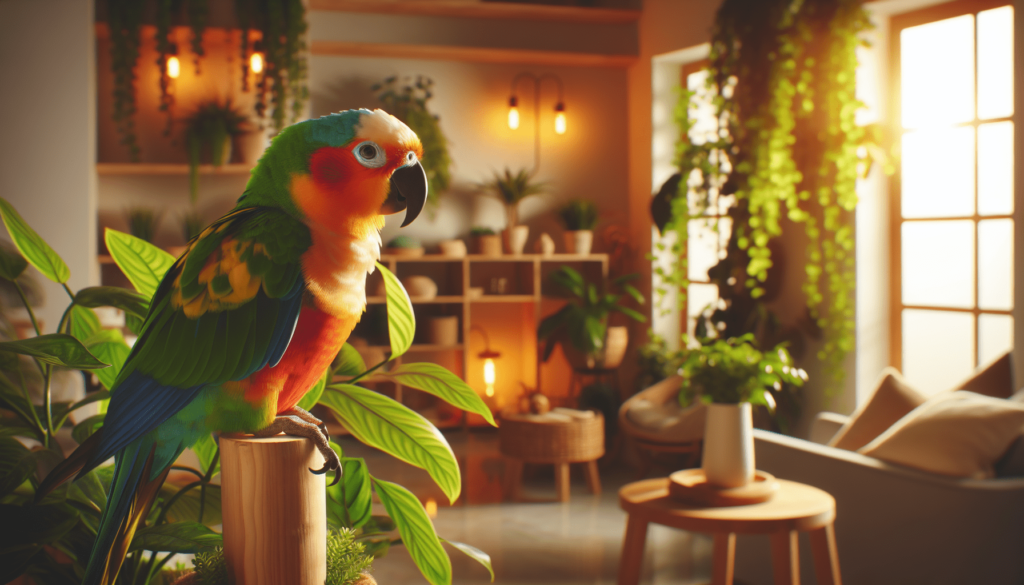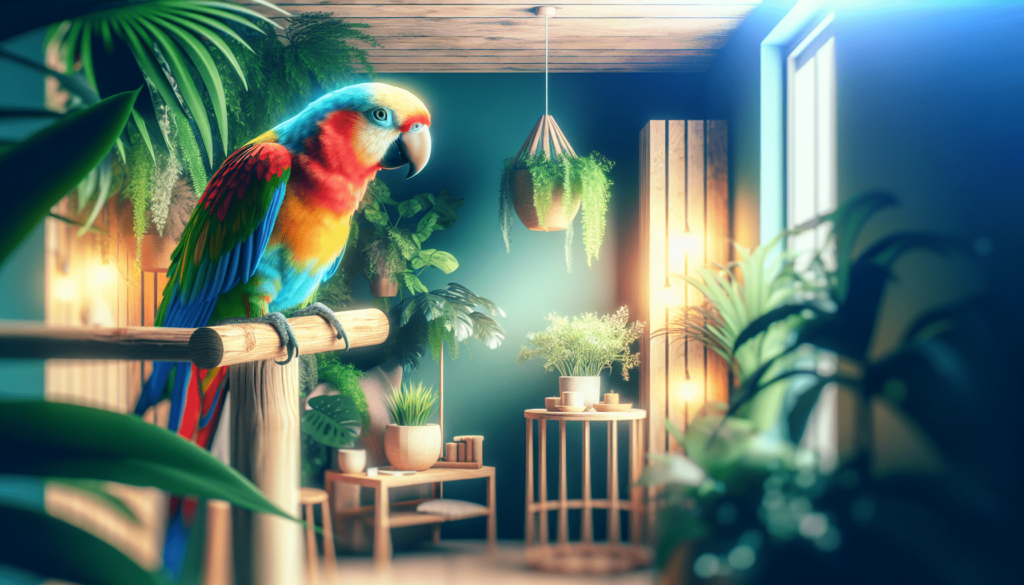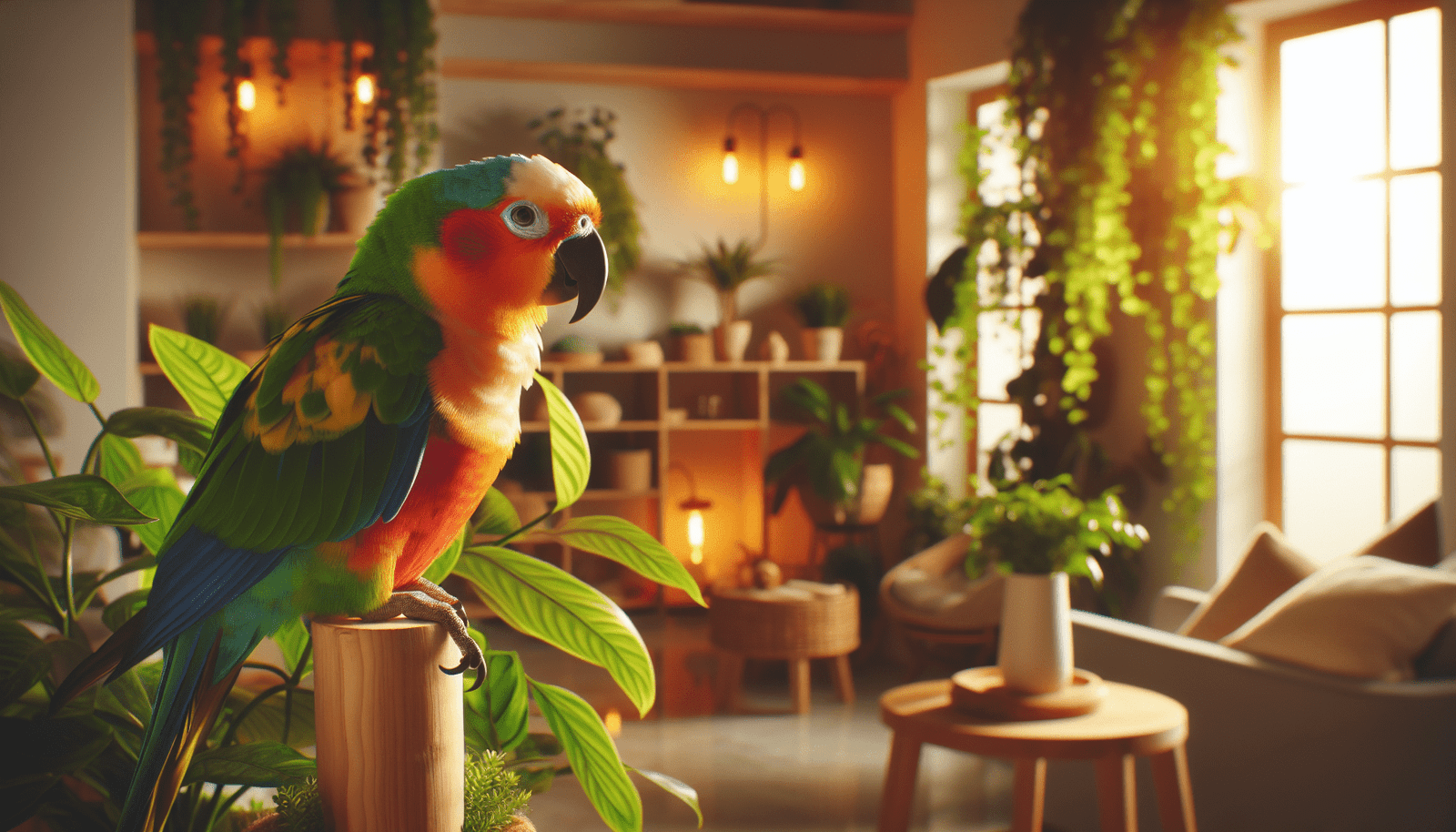Have you ever wondered what it takes to keep your feathered friend chirping with joy and living a long, healthy life at home?
Owning a bird is a delightful experience, but it requires a bit of know-how to ensure your pet stays happy and healthy. Birds are unique creatures with specific needs that differ vastly from those of more common household pets like cats and dogs. So, how do you create the perfect environment for your avian companion? Let’s get into the nitty-gritty of avian care, covering everything from cage design to grooming.

Choosing the Right Cage for Your Bird
While a cage will never replace the freedom of the skies, selecting the right one can make a world of difference for your bird’s quality of life.
Size Matters
When it comes to bird cages, bigger is always better. Birds need ample space for flying and flapping their wings. A cramped cage can lead to stress and even health issues. Make sure the cage is large enough for your bird to spread its wings fully and move around comfortably. Keep in mind that some species require more room than others.
Bar Spacing and Material
Ensure the bars are appropriately spaced to prevent escape or injury. Smaller birds like parakeets need tighter bar spacing than larger birds like macaws. Additionally, opt for stainless steel or powder-coated cages to avoid rust and potential health hazards.
Creating a Bird-Friendly Environment
Your home’s environment plays a significant role in your bird’s health and happiness.
Temperature and Humidity
Birds are sensitive to temperature changes. Maintain a consistent room temperature, ideally between 60-70 degrees Fahrenheit. Avoid placing the cage near drafts, direct sunlight, or heating vents. Humidity levels should be similar to their natural habitat; usually, 40-70% is recommended.
Lighting
Birds need adequate lighting to regulate their biological clocks and promote Vitamin D3 synthesis, important for calcium absorption. Aim for 10-12 hours of daylight exposure. Full-spectrum light bulbs can simulate natural sunlight, which is especially beneficial during shorter daylight months.
Keeping it Clean
A clean cage is vital for bird health. Daily cleaning tasks include replacing the cage liner and removing uneaten food. Weekly, scrub the cage with a bird-safe cleaner to prevent bacteria and mold growth.
Balanced Nutrition for Your Bird
Just like us, birds need a balanced diet to thrive.
Quality Bird Food
Pellets are a great foundation for a bird’s diet as they’re formulated to contain all essential nutrients. Seeds should be treats, not staples, due to high fat content. Include fresh fruits and vegetables for variety and additional vitamins.
| Type of Food | Recommended | Caution |
|---|---|---|
| Pellets | Daily | Choose high-quality, balanced types |
| Seeds | Sparingly | High fat content |
| Fruits & Vegetables | Daily | Avoid avocados and fruit seeds |
Fresh Water
Always provide clean, fresh water. Change it daily to prevent bacterial growth. Make sure your bird’s water dish is easy for them to access but difficult to contaminate with droppings.
What to Avoid
Avoid feeding your bird chocolate, caffeine, alcohol, salty snacks, and avocado as they can be toxic.
Ensuring Regular Exercise
Birds are energetic creatures and need regular exercise to stay fit.
Toys and Activities
Toys are essential for keeping your bird mentally and physically stimulated. Rotate toys regularly to keep things interesting. Look for sturdy toys made from bird-safe materials and avoid those with small parts that might be ingested.
Free Flying Time
Allow your bird out-of-cage time to stretch their wings and explore. Ensure your home is secure – windows closed, ceiling fans off, and toxic plants out of reach. Supervised flight within a bird-proofed room is ideal.
Training and Interaction
Simple training sessions can provide mental stimulation and strengthen the bond between you and your bird. Start with basic commands like “step up” and gradually move to more advanced tricks.

Maintaining Bird Health with Regular Grooming
Grooming is an often-overlooked aspect of bird care but is crucial for their health.
Nail and Beak Trimming
Overgrown nails can cause discomfort, while an overgrown beak can indicate health problems. These should be assessed and managed regularly to avoid issues. Consult a vet for trimming guidance.
Bathing and Feather Care
Birds love to bathe. Provide a shallow dish of lukewarm water or use a bird-specific spray bottle. Promote feather health by ensuring a balanced diet and regular baths.
Understanding Bird Behavior and Communication
Recognizing your bird’s behavior is key to responding to its needs appropriately.
Body Language
Learn to understand your bird’s body language. A raised crest or puffed feathers can indicate stress or curiosity, while a relaxed posture usually means contentment.
Vocalizations
Birds are vocal creatures. Different sounds can convey happiness, anxiety, or need for attention. Spend time listening to your bird and learning their vocal cues.
Socialization: A Happy Bird is Not a Lonely Bird
Social interaction is as important to birds as food and water.
Human Interaction
Daily interaction with your bird is crucial. Talk, sing, or simply hang out nearby. Birds are social creatures and thrive on companionship.
Companionship with Other Birds
If feasible, consider getting a companion bird, especially if your bird is from a species known for being social. This can prevent loneliness, but always ensure proper introductions and check compatibility.
When to Visit the Vet
Regular veterinary care is essential for detecting health issues early.
Finding an Avian Vet
Not all vets specialize in bird care. Look for an avian vet with experience, as birds hide illnesses well and require specific expertise.
Routine Check-ups
Annual check-ups are recommended even if your bird appears healthy. Regular vet visits can catch subtle health issues early and contribute to a longer, healthier life.
Enrichment for a Healthy Mind
Keeping your bird mentally stimulated is as crucial as physical health.
Problem-Solving Toys
Introduce puzzle toys that require your bird to think and solve problems for rewards. These toys enhance cognitive skills and reduce boredom.
Interactive Games
Engage in interactive games with your bird such as hide and seek or teaching new words and phrases. These activities can bolster your bird’s intellect and strengthen your bond.
Preparing for Emergencies
Being prepared for emergencies can make all the difference.
Emergency Kit
Create a bird emergency kit with essentials like a first-aid guide, bandages, vet contact details, and basic medical supplies. Having these on hand will prepare you for unexpected situations.
Handling Stressful Situations
Knowing how to handle stressful situations calmly can prevent additional trauma. Remain composed and soothe your bird with a quiet, reassuring voice.
By focusing on these essential aspects of bird care, you’ll create an environment where your avian friend can flourish. Birds, with their vibrant personalities and engaging behaviors, offer so much joy and companionship. Ensuring they’re happy and healthy at home is a rewarding journey, and your feathered companion will certainly thank you for it in their own charming way.
